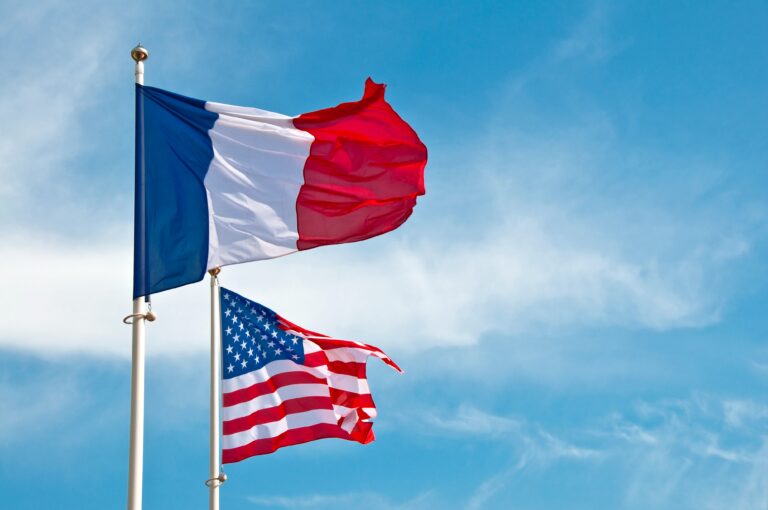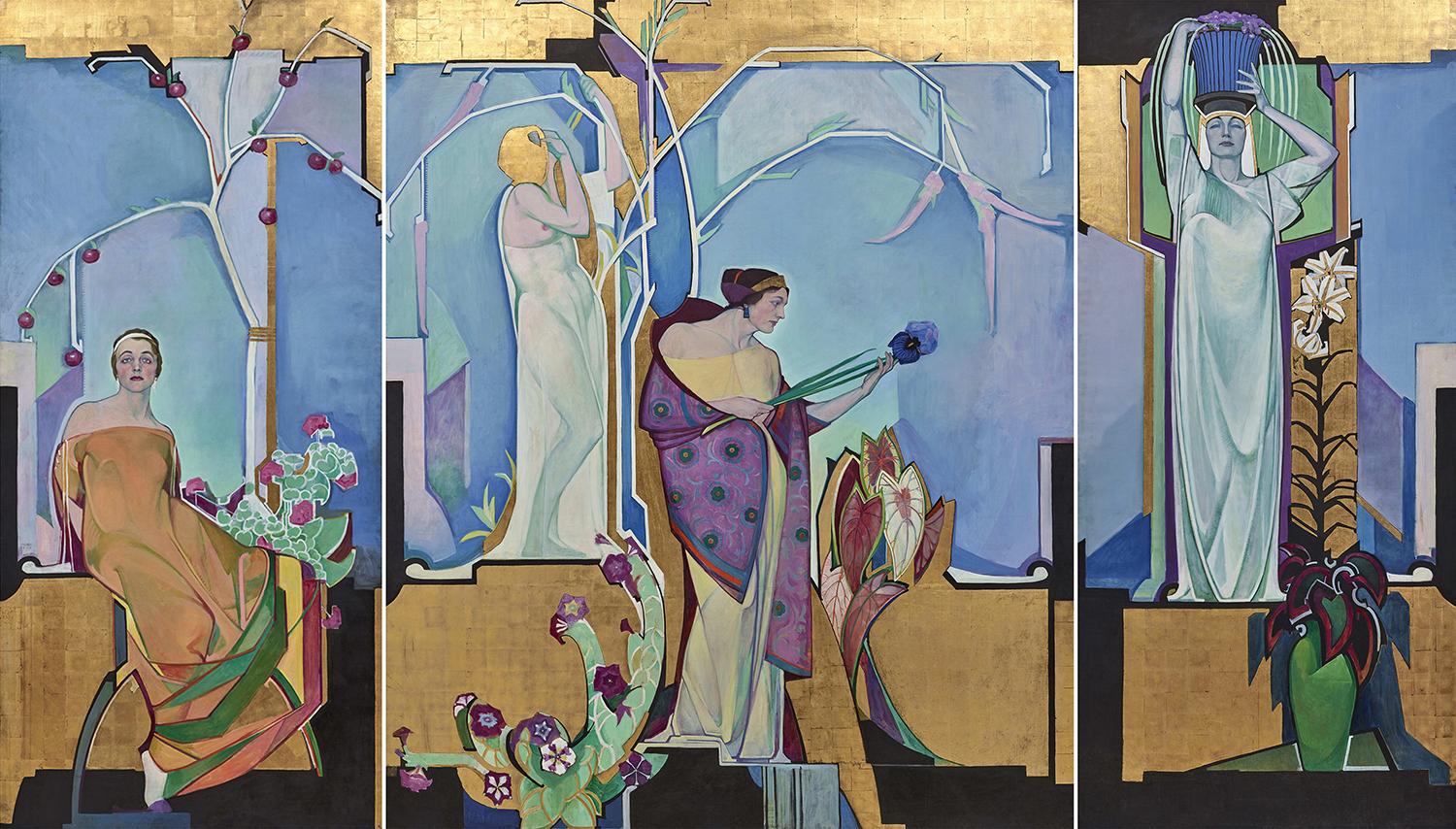
Brilliant Exiles: American Women in Paris | French-American Histories
Exhibition, Talk

In Exaltation of Flowers: Rose-Geranium; Petunia-Caladium-Budleya; and Golden-Banded Lily-Violets by Edward Steichen (1879–1973) / Tempera and gold leaf on canvas, 1910–13 / Art Bridges
On September 19, join Villa Albertine for a new episode of the “French-American Histories, One Story, Two Narratives” series of virtual talks on the exhibition Brilliant Exiles: American Women in Paris 1900-1939 at the National Portrait Gallery in Washington, DC.
French-American Histories, One Story, Two Narratives is a program of virtual talks launched by Villa Albertine in collaboration with the Federation of Alliances Françaises USA. Each episode reveals a different facet of the vibrant French-American tapestry, through interviews with leading scholars, experts, and practitioners conducted by Dr. Iris de Rode, an expert in the history of French-American relations. The interviews are broadcast live and recorded at the French Embassy or other locations in the United States. For this edition, we are thrilled to host Robyn Asleson, for an episode focusing on the narratives of American women in Paris in 1900-1939, as part of the exhibition Brilliant Exiles, at the National Portrait Gallery.
This virtual talk was recorded and published on the Embassy of France’s YouTube channel here.
You can watch the recording below:
For the upcoming French-American Histories, One Story, Two Narratives conversation, we will discuss this exhibition on American women in early 20th-century Paris, a time when they transcended societal constraints to redefine their identities. The talk will explore how these “brilliant exiles” made significant contributions to art, literature, dance, publishing, music, and fashion, shaping modernist movements from the heart of a cosmopolitan city. Delve into the freedoms they discovered, the transformative work they led, and reflect on the progress made since their pioneering journeys.
A Conversation with Robyn Asleson, moderated by Iris de Rode, PhD

Robyn Asleson joined the National Portrait Gallery in 2016. As curator of the Prints and Drawings Department, she conducts research, develops exhibitions, and identifies new acquisitions. Her exhibitions and publications reflect a longstanding interest in transatlantic crosscurrents in the history of American art, the role of women as cultural agents, and the relationship between portraiture and the performing arts. Her exhibition projects at the Portrait Gallery include “Brilliant Exiles: American Women in Paris, 1900–1939” (2024), the team- curated “Kinship” (2022), and “Portraits of the World” (2016-20), a series of spotlight exhibitions featuring individual portraits on loan from international museums, placed in conversation with works from the Portrait Gallery collection. She was venue curator for the exhibition “John Singer Sargent: Portraits in Charcoal” (2020) and is currently developing an exhibition of nineteenth-century American theatrical portraits, “Staging America: Theater and National Identity, 1812-1912” (2026).
Prior to joining the National Portrait Gallery, Asleson wrote the comprehensive permanent collection catalogue British Paintings at the Huntington (2001) and served as editor and co- author of Notorious Muse: The Actress in British Art and Culture (1776–1812) (2003) and A Passion for Performance: Sarah Siddons and Her Portraitists (1999). She was also curator of
the exhibition “Cultivating Celebrity: Portraiture as Publicity in the Career of Sarah Siddons” at the Huntington (1999) and co-curator of “Great British Paintings from American Collections: Holbein to Hockney” at the Yale Center for British Art (2001).
In 2016, Asleson co-organized the exhibition “The Lost Symphony: Whistler and the Perfection of Art” at the Smithsonian’s Freer/Sackler Gallery. The exhibition built on Asleson’s many publications on the Aesthetic Movement in the United States and Great Britain, including a monograph on the influential English painter Albert Moore (2000) and her prize-winning doctoral dissertation, Classic into Modern: The Inspiration of Antiquity in English Painting,1864-1918 (1993). Asleson holds B.A., M.A., and Ph.D. degrees from Yale University.
About French-American Histories, One Story, Two Narratives
240 years ago, fighting side by side for American independence, France was the first ally of the newly formed United States of America. Since then, the two countries have stood firm as “Sister Republics,” championing shared principles of democracy, freedom, and equality. The durable partnership has been characterized by a shared ambition and a common necessity for cooperation in a wide variety of fields in an increasingly globalized world. These encounters, spanning more than two centuries and ranging from military to economic policy, agriculture, trade, philosophy, art, science, and technology, have resulted in dynamic, fruitful, and inspirational cross-exchanges that have shaped the destiny of both countries.
The two countries have numerous similarities but also separate histories, cultures, and institutions, making their dynamic and creative relationship, which at times has been contentious. Over the years, comparable concepts that have been implemented in the distinct French and American cultures have flourished, but also encountered alteration, adaptation, or even opposition, requiring hurdles to be overcome and compromises to be found. France and the United States have frequently expressed their conviction in a single, unifying story, yet they needed two narratives to tell their peoples: One Story, Two Narratives.
In partnership with

Fédération des Alliances françaises USA
Related content

